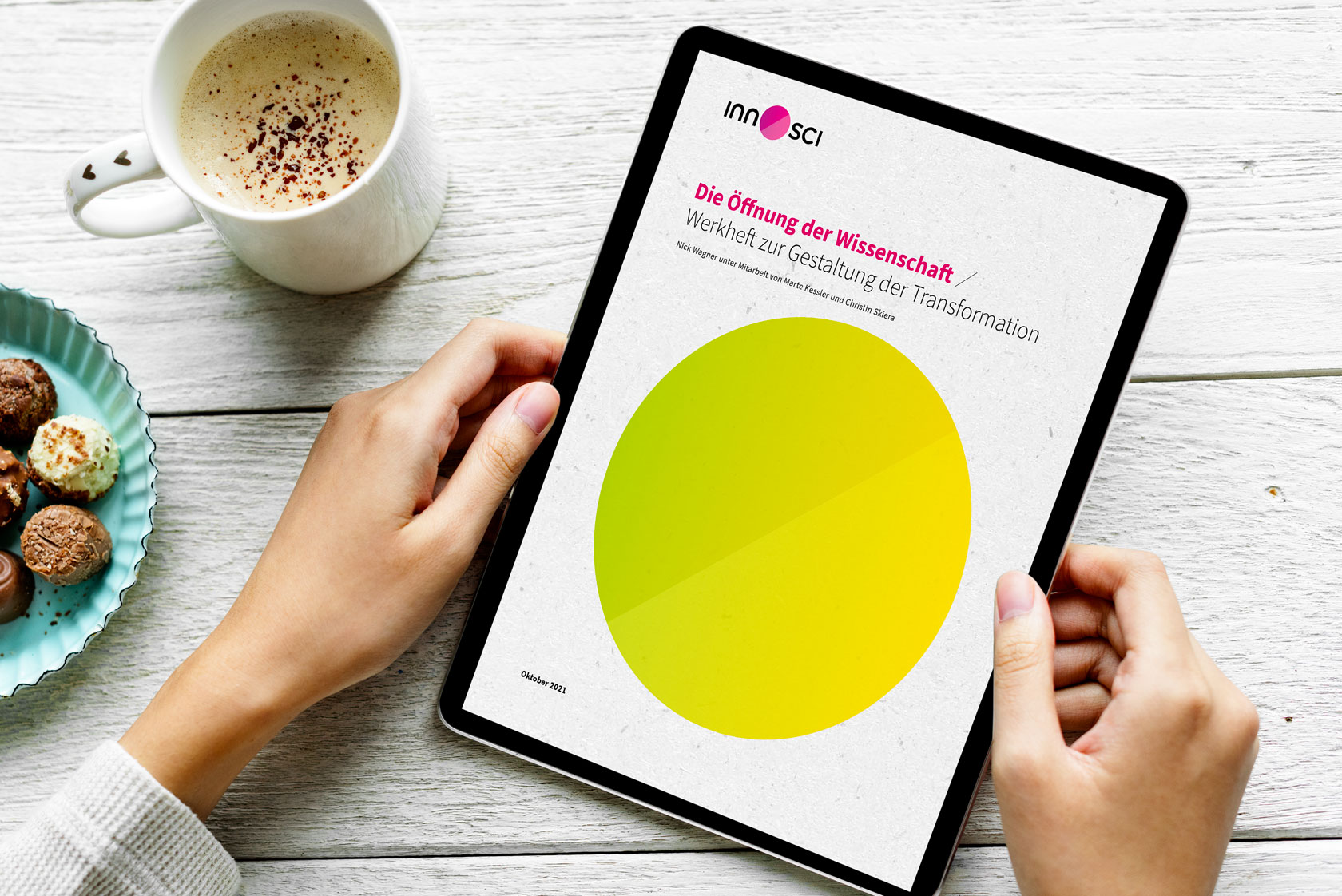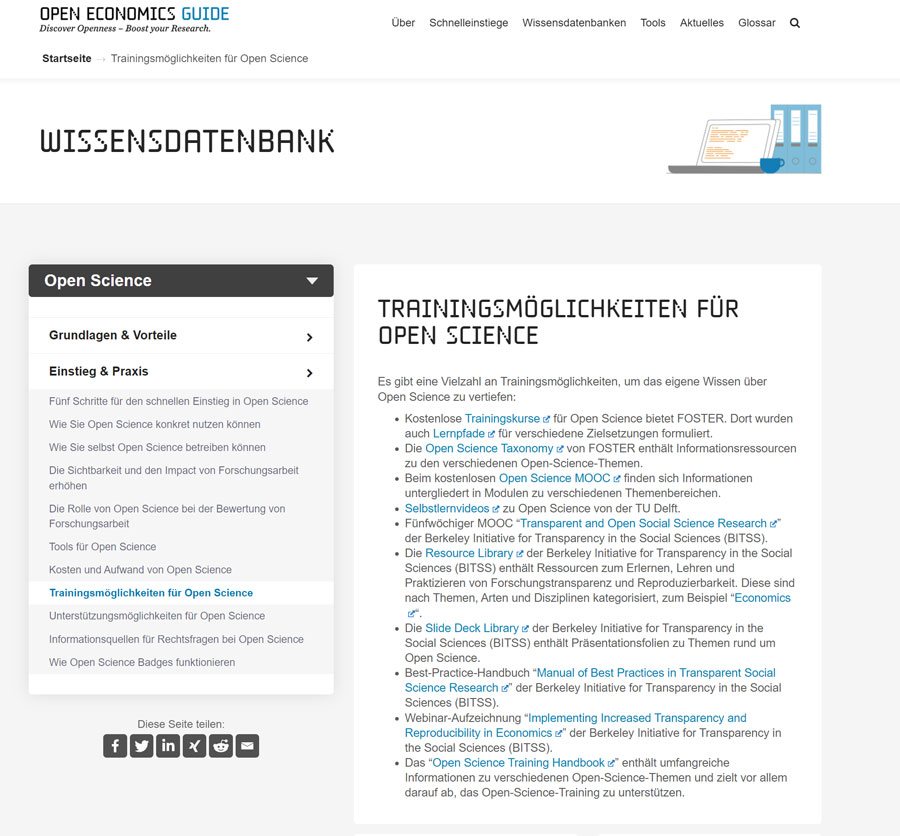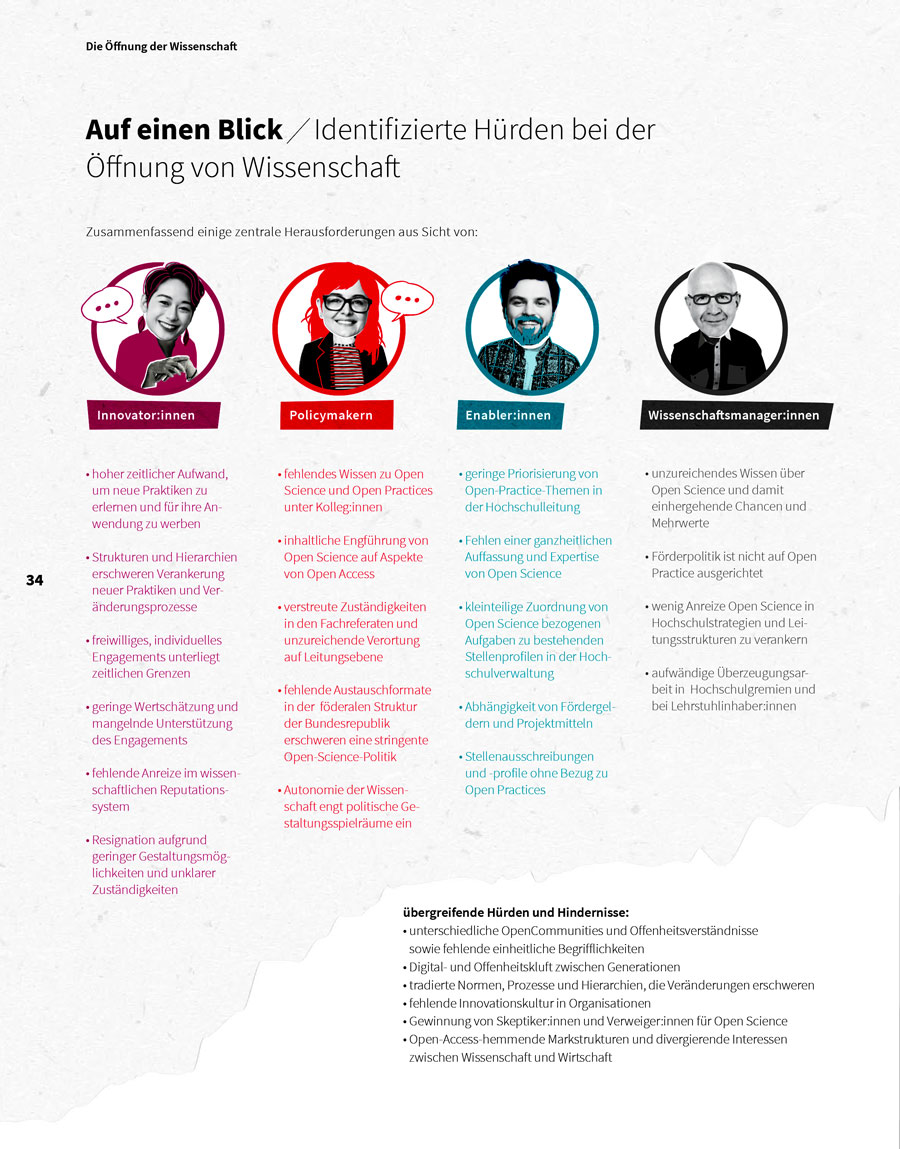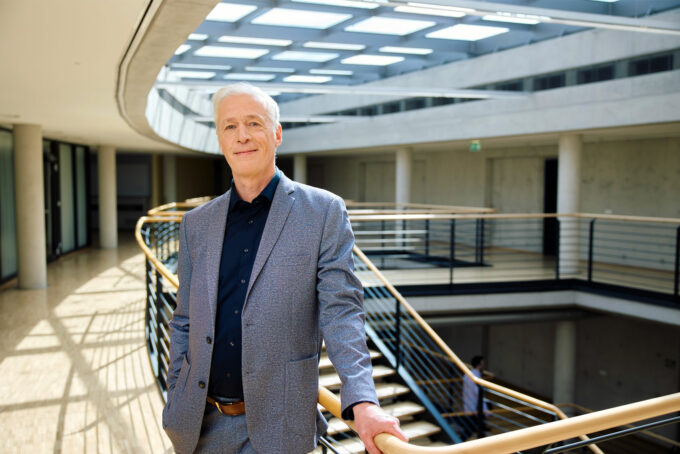
Open Science as a “Wicked Problem”: How Libraries can Accelerate the Transformation
The transition to Open Science often seems to be sluggish. A recently published workbook explains why this is so, using the concept of the “wicked problem”. It also illustrates how the various roles in the science system can foster the transition to Open Science. The points that are particularly interesting for libraries are summarised in the blog post – including suggestions on how to implement them.
by Birgit Fingerle

In mid-November innOsci – the forum for open innovation culture in the German Stifterverband – published the workbook “The Opening of Science / Workbook on Designing the Transformation (PDF, German).
Opening of science as a “wicked problem”
The opening of science is described in the workbook as a “wicked problem”: a very complex problematic situation, characterised by the fact that it surpasses the ability of a single organisation to understand it and react to it, and that disagreement often exists about the causes of the problem and the best way to solve it. Ultimately no higher education institution alone can achieve a systematic transformation to Open Science. Collaboration across organisation and industry boundaries is essential to achieve the objective. The concept of the wicked problem offers important starting points for better understanding of the challenges and the development of solution options. In order to solve wicked problems, it is important for people to change their behaviour, particularly as open approaches question habitual working practices and cultures.
Supporting innovators in the science system
A series of people from the science system were interviewed for the workbook. Four personas with their respectively perceived hurdles and obstacles relating to Open Science were derived from these perspectives, for example that of an Open Science officer.
The workbook lists a variety of small and large steps that can be taken to promote Open Science at all levels. The steps that support researchers who want to practice Open Science as innovators in the science system include:
- The creation of incentive structures for open practices, particularly funding possibilities and support services;
- Obligation to publish research data and methods;
- Take into account open practice expertise and the societal impact of the research during appointment procedures;
- Open Science further training and qualification offers.
Create incentive and support structures for open practices
Libraries in particular can contribute to creating incentive and support structures for open practices by establishing support services or by referencing the support possibilities offered by other organisations. These include the Open Access officers already established at many libraries or the establishment of help desks as well as online information services and discussion forums.
Even if they do not offer any relevant services themselves, libraries can at least point to the services of others. Examples of relevant online information services are the open-access.network, forschungsdaten.info or the Open Economics Guide of the ZBW (German; English language version will be published in 2022). Support centres for Open Science (Germam) and Open Access (German) are listed in the Open Economics Guide.
Open Science further training and qualification programmes
Similarly, libraries can, on the one hand, offer training opportunities for Open Science and, on the other, can point to training possibilities offered by third parties. There are many different training formats possible. They range from on-site seminars and MOOCs via “challenges”, such as the Open Education Challenge Series, and email courses to the Open Science Coffee Lectures (link in German language) offered by the Bonn University and State Library and the Bonn University Computer Center for example.

“Training opportunities for Open Science “ in the Open Economics Guide of the ZBW
Many training opportunities for Open Science, Open Access and Open Data are listed in the Open Economics Guide (links in German language).
Start with yourself: promote a collaborative working culture
A series of measures in the workbook serve to “open spaces and promote discussion”. It is a good idea to start with yourself if you want to convince others of the advantages of something, and this also applies to open working practices. Libraries should therefore also practice a collaborative working culture themselves, if they want to convince researchers of its advantages. The ever present “bubble-thinking” that many employees in science and administration have always wanted to get away from, that hinders the flow of information, creativity and innovation, would thereby be removed, enabling many employees to enjoy a collaborative working culture. Relevant measures often begin small, such as chance meetings in the kitchenette, at the sofa corner and an easier desk rotation. Collaborative software and Working Out Loud Circles can also promote exchange and collaboration, as can innovative event formats such as open space conferences, barcamps, hackathons and lunch talks or the use of creativity- and innovation-promoting working methods including design thinking, business model canvas or crowdsourcing.
This text has been translated from German.
These posts may also interest you:
- Open Economics Guide: New Open Science Support for Economics Researchers
- Working Out Loud: Working Out Loud: How to support the Learning Library
- Tool Collections: Choose the Right Tools for Digital Collaboration and Learning
- Agile Working: Kanban Offers Flexibility and Transparency for Innovation Projects and Open Science
- Agile Working: Promoting Innovation and Open Science with Scrum
About the author:
Birgit Fingerle holds a diploma in economics and business administration and works at ZBW, among others, in the fields innovation management, open innovation, open science and currently in particular with the “Open Economics Guide”.
Portrait, photographer: Northerncards©
View Comments

First Open Science Retreat: On the Future of Research Evaluation
The ZBW's Open Science Retreat invites various stakeholders from all over the world...




